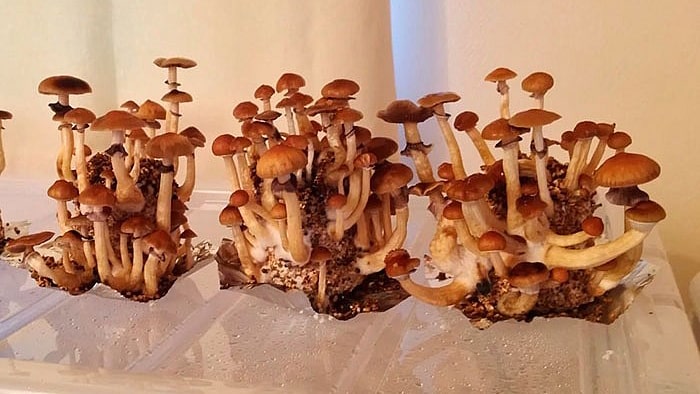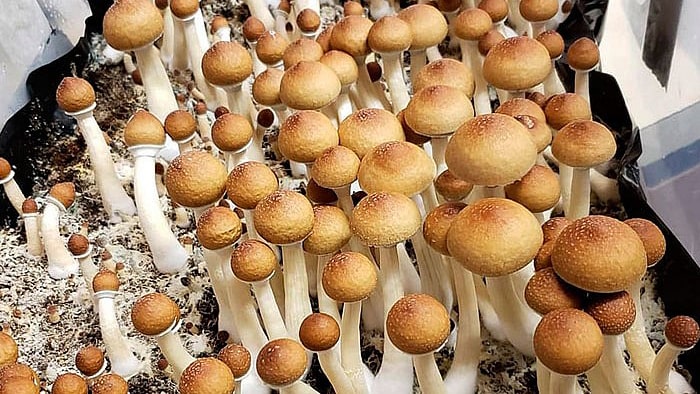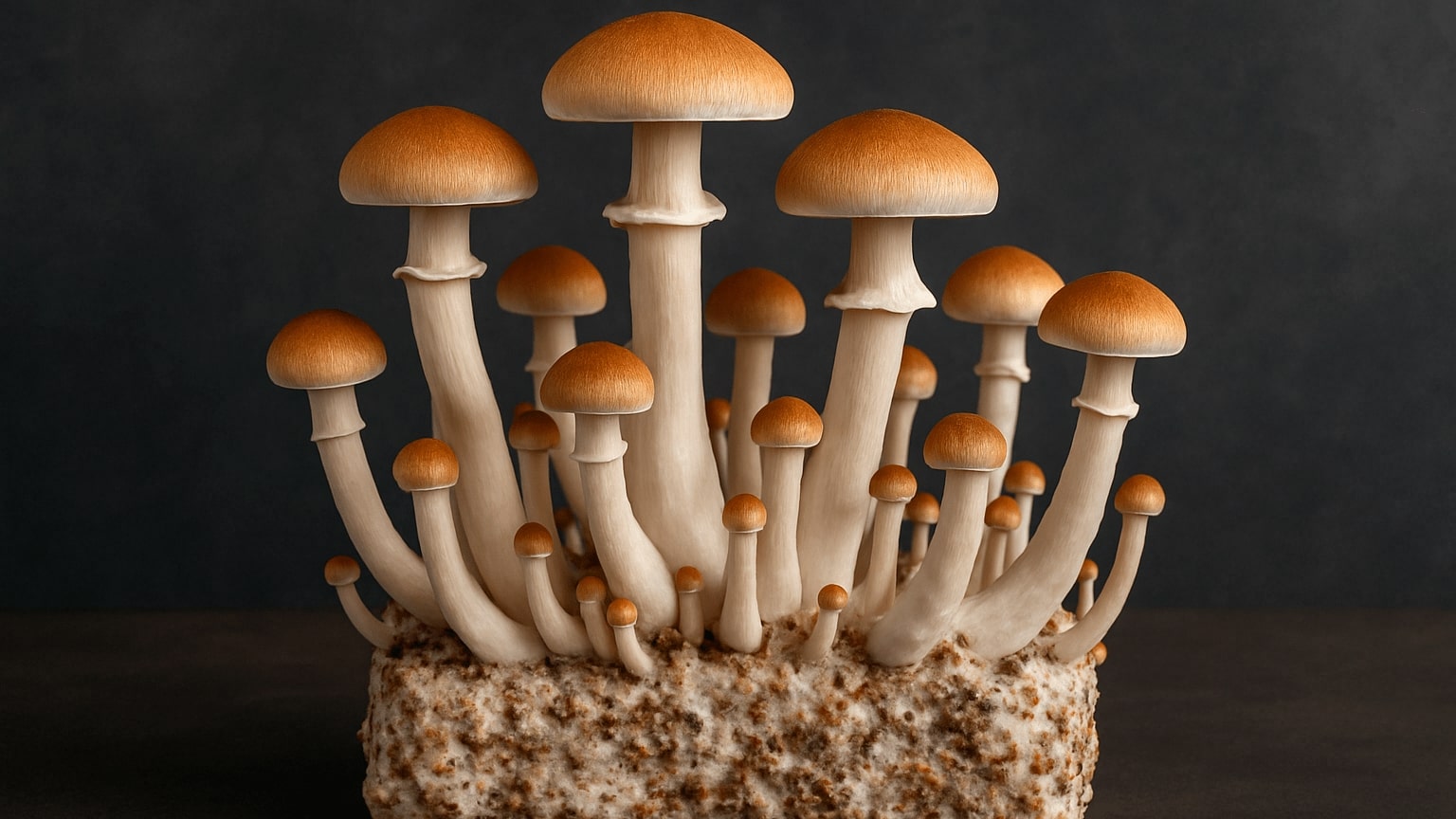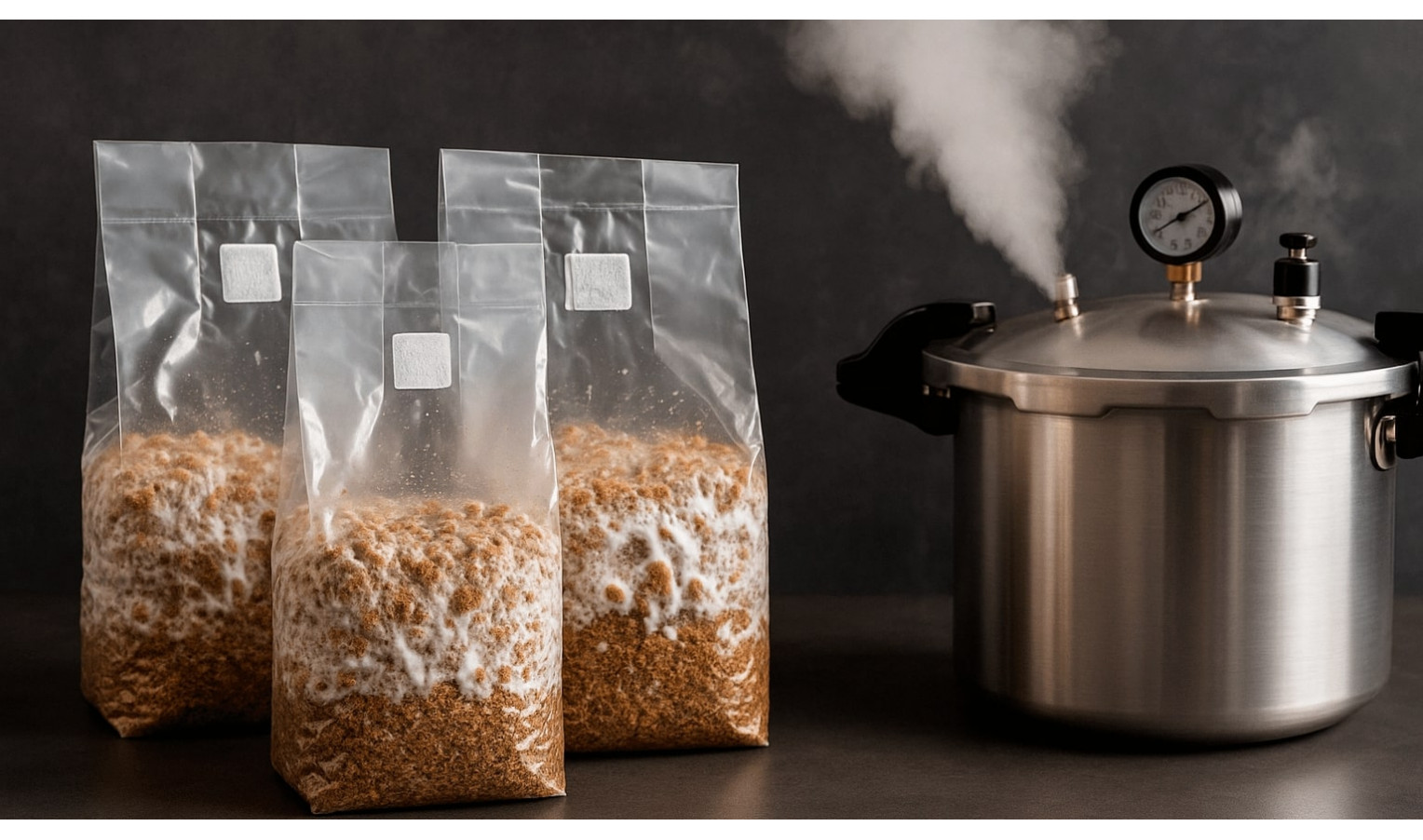Beginning cultivators often underestimate the importance of such a step as substrate sterilization. However, it is this stage that largely determines the success of the entire psilocybin mushroom cultivation cycle. Without quality preparation of the medium, it is impossible to create conditions under which the mushroom mycelium will actively develop and form full-fledged fruiting bodies. In this article we want to tell you about the important process of sterilization of the substrate for cultivation, and what methods are available.
Why substrate sterilization is so important when growing psilocybin mushrooms

Mushroom substrate is the base on which psilocybin mushrooms grow. It most often consists of grains, coconut fiber, vermiculite and other organic components. This mushroom breeding medium is ideal not only for psilocybin mushroom spores, but also for mold, bacteria, and other unwanted microorganisms. If the substrate is not thoroughly sterilized, there is a high risk of contamination of the substrate, resulting in mycelium death and complete crop failure.
It is important to understand that substrate sterilization is not just a formality. It is a scientifically sound step to create a sterile, safe environment for fungal growth. This is why even ready-made store-bought mushroom substrate is often recommended to be further sterilized before use.
Sterility is especially important in the context of the growing interest in psilocybin microdosing. Today, many people are learning 5 facts about microdosing, including its potential effects on mood, creativity, and concentration. But to get a clean, safe product with no traces of mold or toxins, it's important to pay attention to every step of cultivation, starting with substrate preparation.
Thus, a sterile mushroom substrate is the key to obtaining a quality, safe crop suitable for both research and practicing mindful microdosing.
How to sterilize substrate correctly: methods and approaches

Effective substrate sterilization is a key step in any psilocybin mushroom cultivation system. Whether you are using a simple jar system or an advanced air-filtered incubator, it is important to avoid contamination of the substrate. To avoid this, you must choose the right processing method and follow the instructions carefully.
There are several common sterilization methods, each with its own characteristics and level of effectiveness:
1. Autoclave sterilization
This is the surest way to kill all spores, bacteria and fungi.
- Suitable for all types of mushroom substrate.
- Temperature: 121°C.
- Processing time: 60-90 minutes.
- Can be used in laboratory and home conditions if equipment is available.
This method provides deep pressure steam sterilization, making the nutrient medium for mushrooms as clean as possible.
2. Heat treatment in the pressure cooker
Alternative to autoclave for home use:
- Temperature and pressure are lower, but sufficient for most applications.
- Sterilization time: 1.5-2 hours.
- Requires care during cooling and sealing.
3. Pasteurization
Not suitable for all substrates, but can be used:
- Heating up to 70-80°C.
- Used for straw or coconut mixtures.
- Does not kill all spores, but reduces the risk of infection if cleanliness conditions are strictly adhered to.
To understand how to sterilize a substrate effectively, you need to consider its composition and volume. For example, grain mushroom substrate requires deeper processing than coconut fiber. It is also important to use heat-resistant filter bags or glass jars that can withstand high pressures.
If you want to avoid mistakes when sterilizing your substrate, remember:
- Never open the containers until they have cooled down completely.
- Sterilize immediately after preparing the substrate, do not delay.
- Only use purified water and quality ingredients.
In modern psilocybin mushroom cultivation systems, it is particularly important to maintain sterility from preparation to inoculation. This is the only way to obtain strong, healthy mushroom mycelium that can quickly colonize the substrate and ensure a stable harvest.
Common mistakes when sterilizing substrate and how to avoid them

Even with theoretical knowledge, many people are confronted with mistakes in sterilizing the substrate, which can lead to a complete loss of the crop. This is especially critical when it comes to growing mushrooms for purposes such as mushroom microdosing: the benefits for the body in this method of consumption can only be realized if the mushroom product is absolutely pure and safe.
Here are the main common mistakes and how to avoid them:
| Mistake | Why it's critical | How to avoid |
| Insufficient sterilization time | Spores and bacteria survive, substrate contamination occurs | Strictly observe the mode: minimum 60-90 min at 121°C |
| Use of non-sterile water | Leads to contamination even after heat treatment | Use only boiled or distilled water |
| Opening the container until it cools down completely | Air and bacteria getting inside | Open jars/bags only under sterile conditions |
| Refilling of containers | Steam circulation is disturbed, substrate is heated unevenly | Fill containers to no more than 2/3 of their volume |
| Use of dirty or used containers | Residues of old microflora quickly infect the new fungal substrate | Thoroughly wash and sterilize all containers in advance |
It is very important to realize that even the slightest breach of sterility can negate all efforts. Since mushroom mycelium is extremely sensitive to the environment, it will not survive competition with aggressive microflora. This means that if sterilization rules are not followed, you will lose not only time, but also the potential benefits that mushroom microdosing can bring.
Against the background of growing interest in topics like “Microdosing mushrooms: benefits for the body”, more and more people are trying to grow their own mushrooms themselves. And only strict adherence to all steps, including sterilization of the substrate, guarantees a pure, safe product suitable for personal use or scientific purposes.
It's important!!! This article is written for informational purposes. We do not promote the use of illegal substances.

